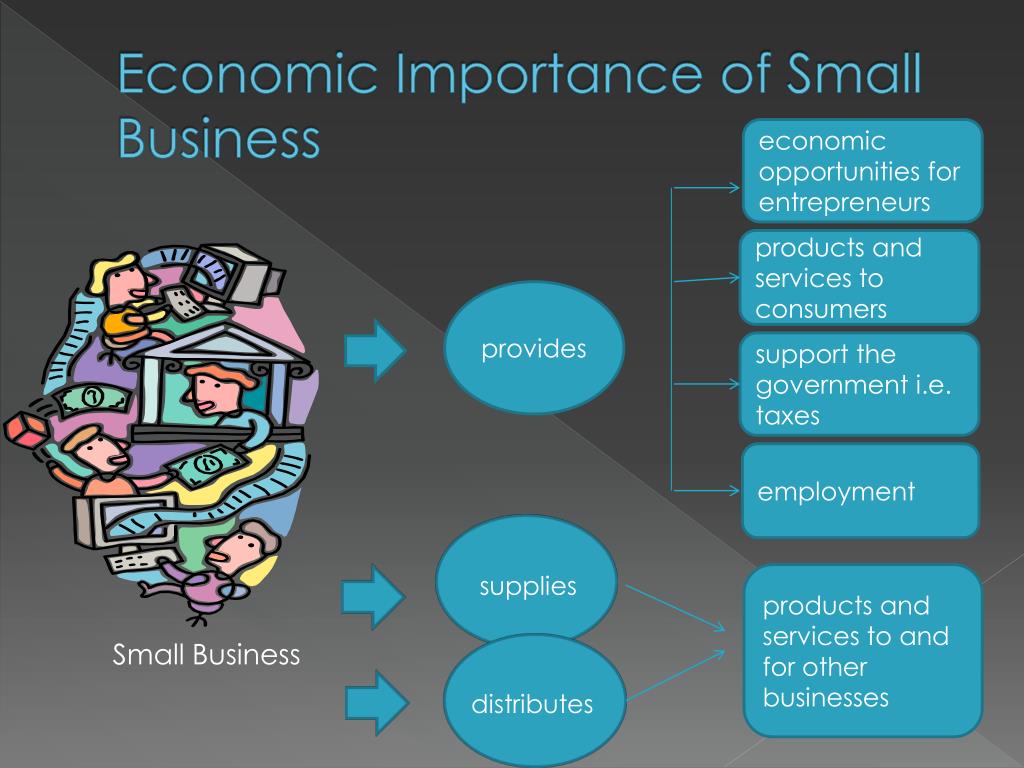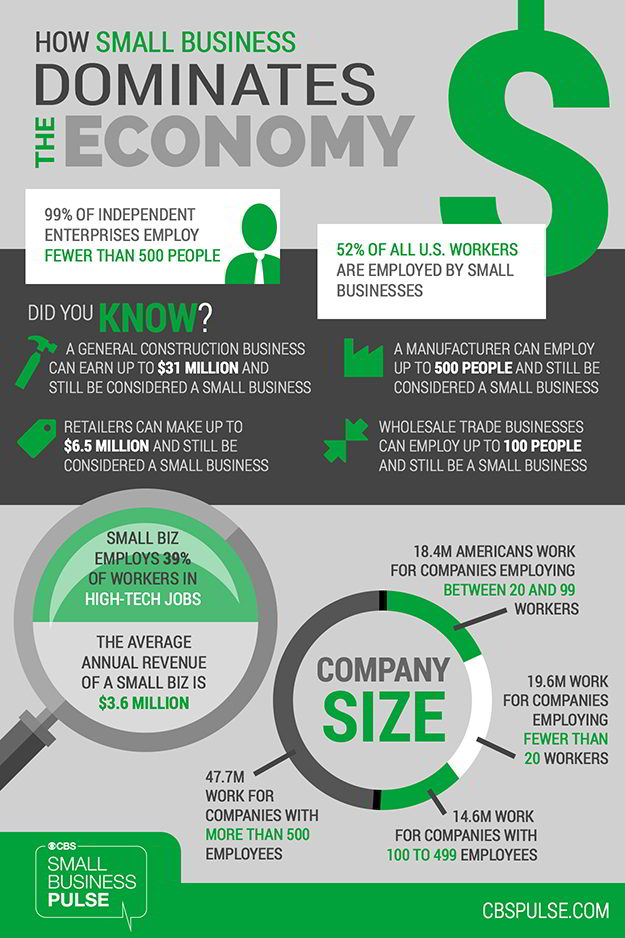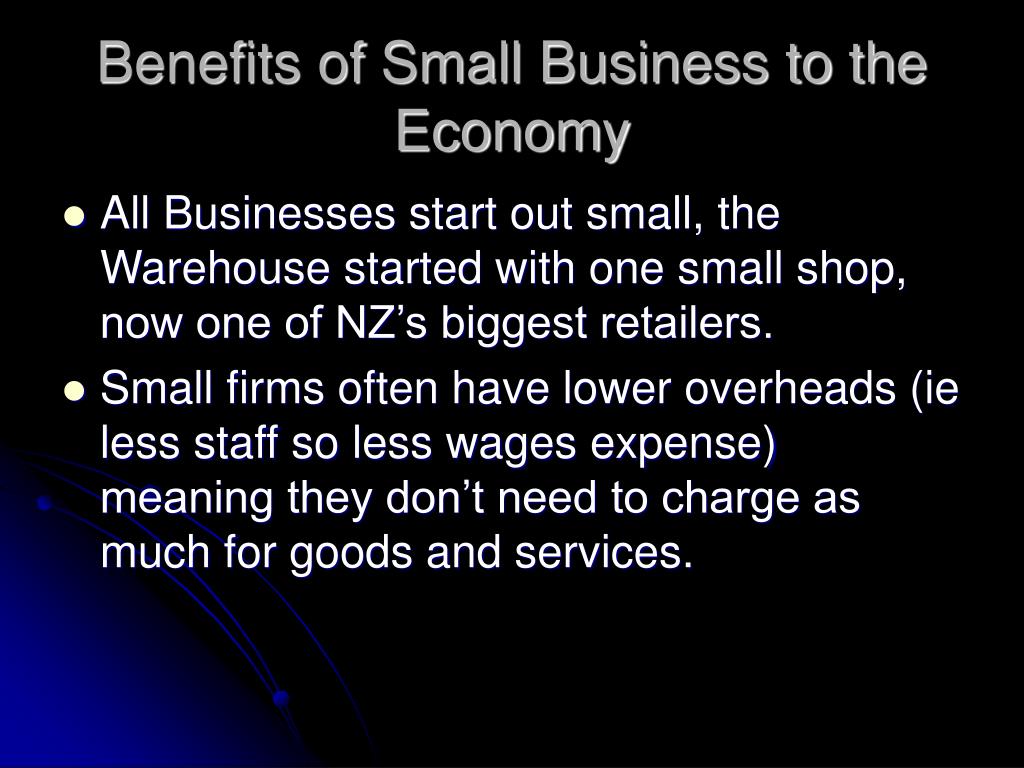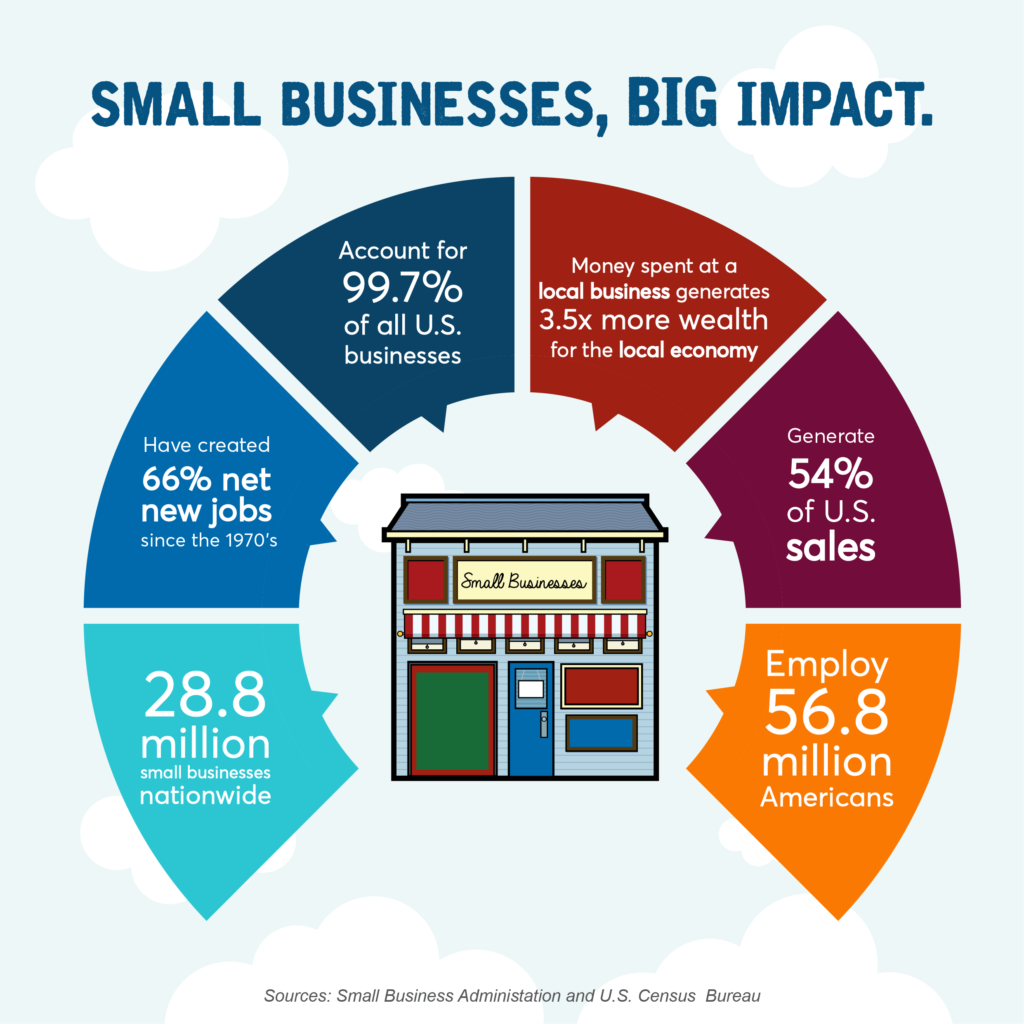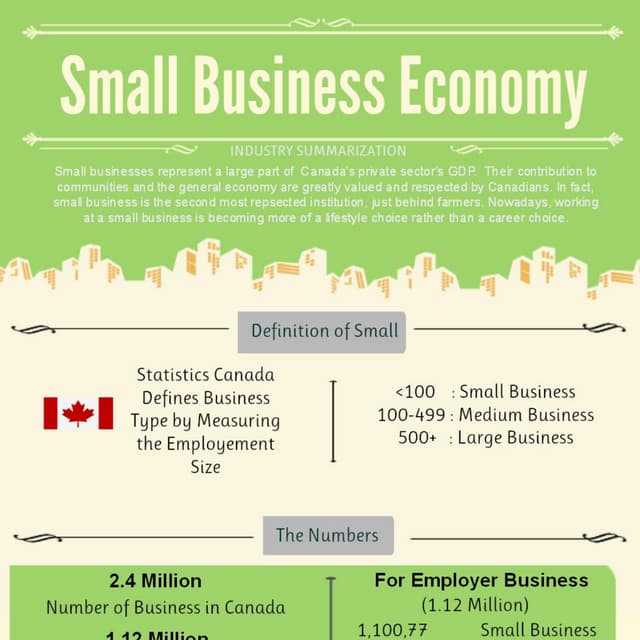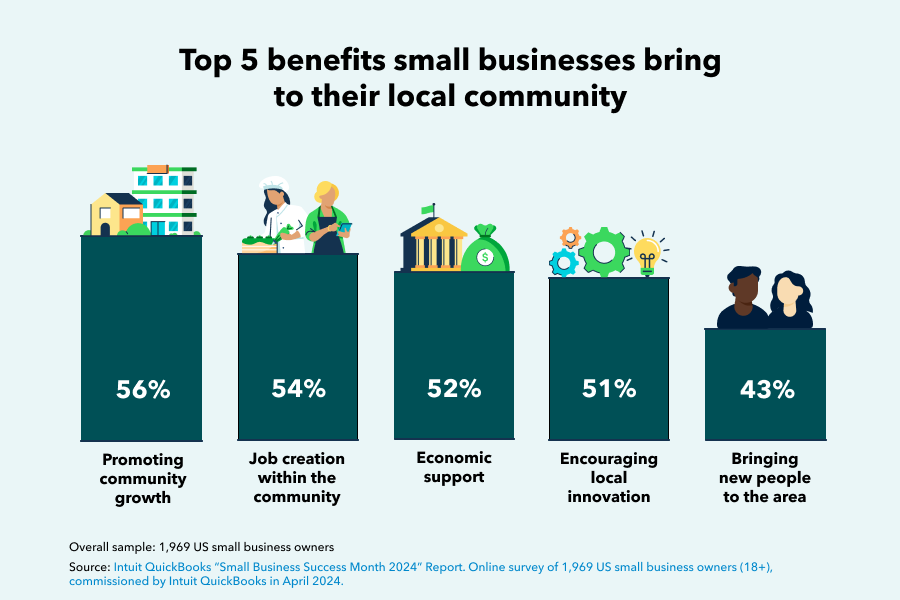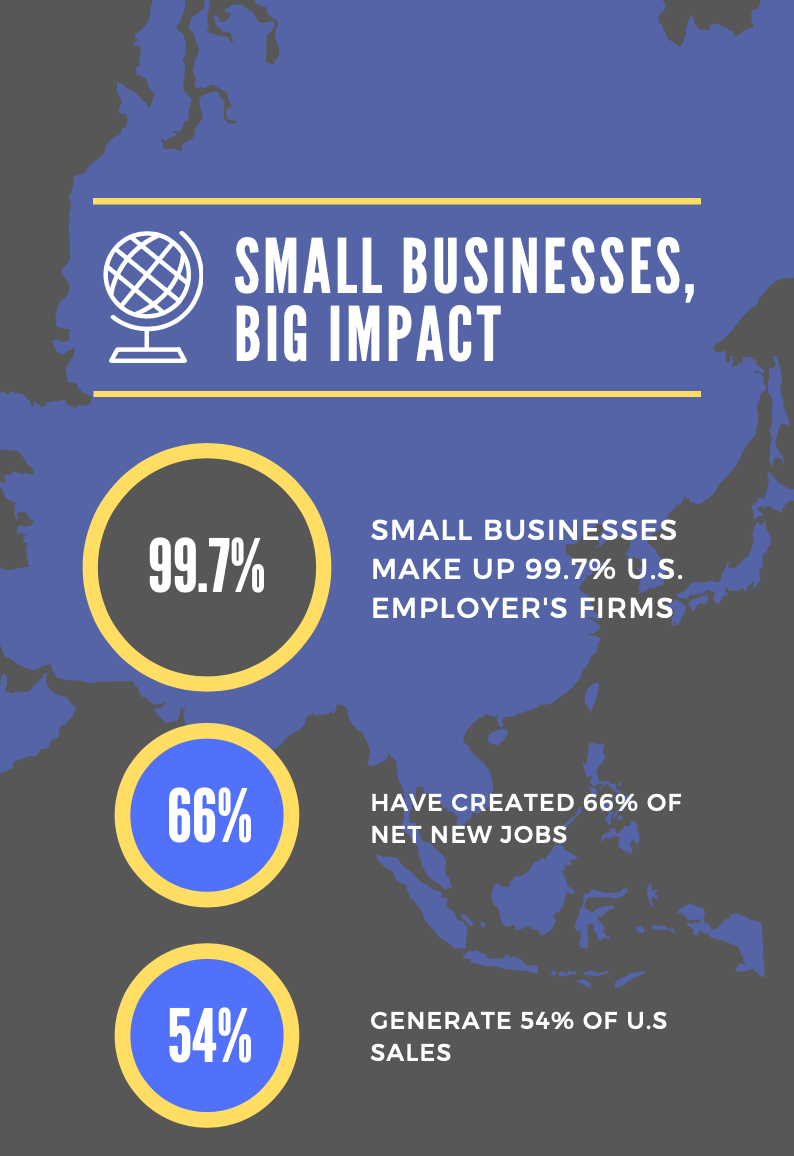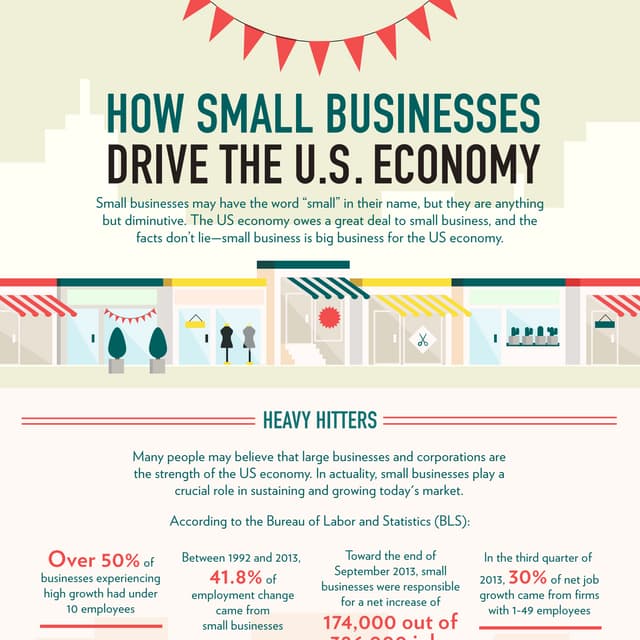What Are The Benefits Of Small Business In The Economy

Small businesses are often hailed as the backbone of any thriving economy, but their true impact stretches far beyond simple revenue generation. From job creation to fostering innovation, the benefits of a vibrant small business sector are manifold and deeply interwoven with the overall health of the economic landscape.
This article delves into the significant contributions of small businesses to the economy, exploring their roles in employment, innovation, community development, and economic resilience. Understanding these benefits is crucial for policymakers, entrepreneurs, and citizens alike, as it informs strategies for supporting and nurturing this vital segment of the economic ecosystem.
Job Creation and Employment
Perhaps the most direct and widely recognized benefit of small businesses is their capacity to generate jobs. According to the Small Business Administration (SBA), small businesses account for a significant portion of net new jobs created in the United States.
Unlike large corporations, small businesses often hire locally, contributing to employment within their communities. These jobs frequently provide opportunities for individuals who may face barriers to entry in larger organizations, such as those with limited formal education or those seeking part-time work.
Furthermore, small businesses are more likely to offer entry-level positions, providing valuable work experience for young people and those re-entering the workforce.
Fueling Innovation and Competition
Small businesses are not just job creators; they are also engines of innovation. Unburdened by the bureaucratic processes and risk aversion often found in larger companies, small business owners are more likely to experiment with new ideas, technologies, and business models.
This entrepreneurial spirit drives competition, forcing larger companies to adapt and innovate as well. A 2019 study by the National Bureau of Economic Research (NBER) found a strong correlation between the presence of small businesses and increased levels of innovation in a given industry.
The dynamism fostered by small businesses leads to greater efficiency, improved products and services, and ultimately, a more competitive and consumer-friendly marketplace.
Strengthening Local Communities
Small businesses are deeply rooted in their local communities, fostering a sense of place and contributing to the social fabric. They often sponsor local events, support community initiatives, and donate to local charities.
This commitment to community not only enhances the quality of life for residents but also strengthens the local economy. When consumers support small businesses, a larger portion of their money stays within the community, creating a ripple effect that benefits other local businesses and residents.
Furthermore, small businesses often reflect the unique character and culture of their communities, preserving local traditions and fostering a sense of identity.
Promoting Economic Resilience
A diversified economy with a strong small business sector is more resilient to economic shocks. Unlike large corporations that may be vulnerable to global market fluctuations, small businesses are often more insulated due to their local focus and closer relationships with their customers.
During economic downturns, small businesses can adapt more quickly to changing market conditions, adjusting their strategies and offerings to meet the needs of their communities.
"Small businesses are nimble and resourceful, which allows them to weather economic storms more effectively,"stated Isabella Casillas Guzman, the current Administrator of the SBA, in a recent press briefing.
This adaptability contributes to economic stability and helps to mitigate the negative impacts of recessions and other economic disruptions.
Conclusion
The benefits of small businesses to the economy are undeniable and far-reaching. From creating jobs and fostering innovation to strengthening local communities and promoting economic resilience, small businesses play a vital role in shaping a vibrant and prosperous society.
Supporting small businesses through policies that encourage entrepreneurship, reduce regulatory burdens, and provide access to capital is essential for ensuring a healthy and sustainable economic future. By recognizing and valuing the contributions of small businesses, we can create an environment where they can thrive and continue to drive economic growth and opportunity for all.
